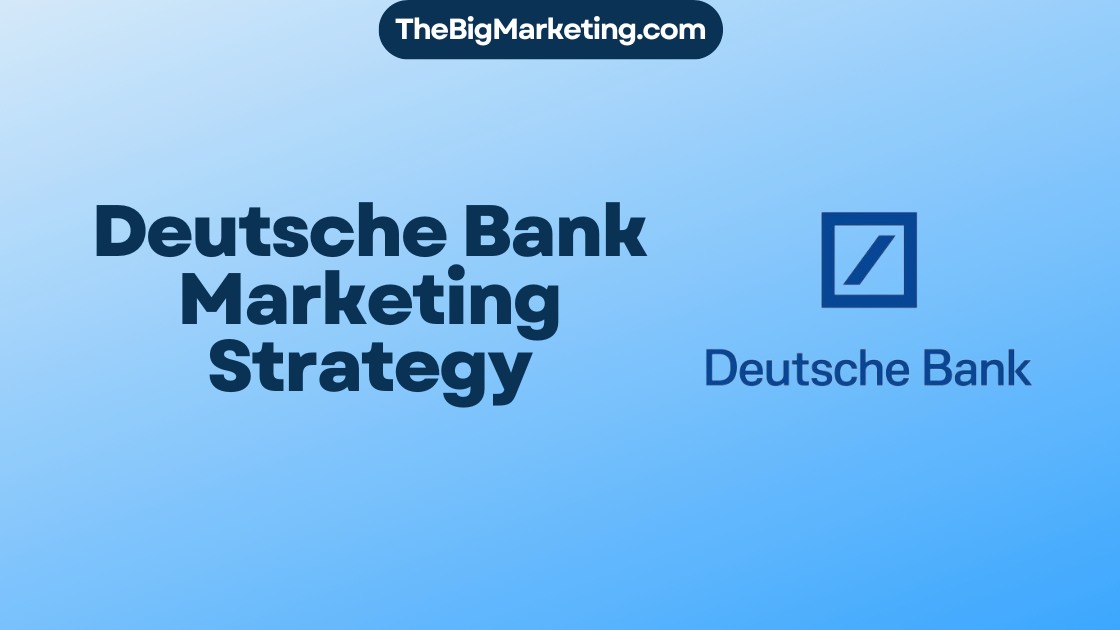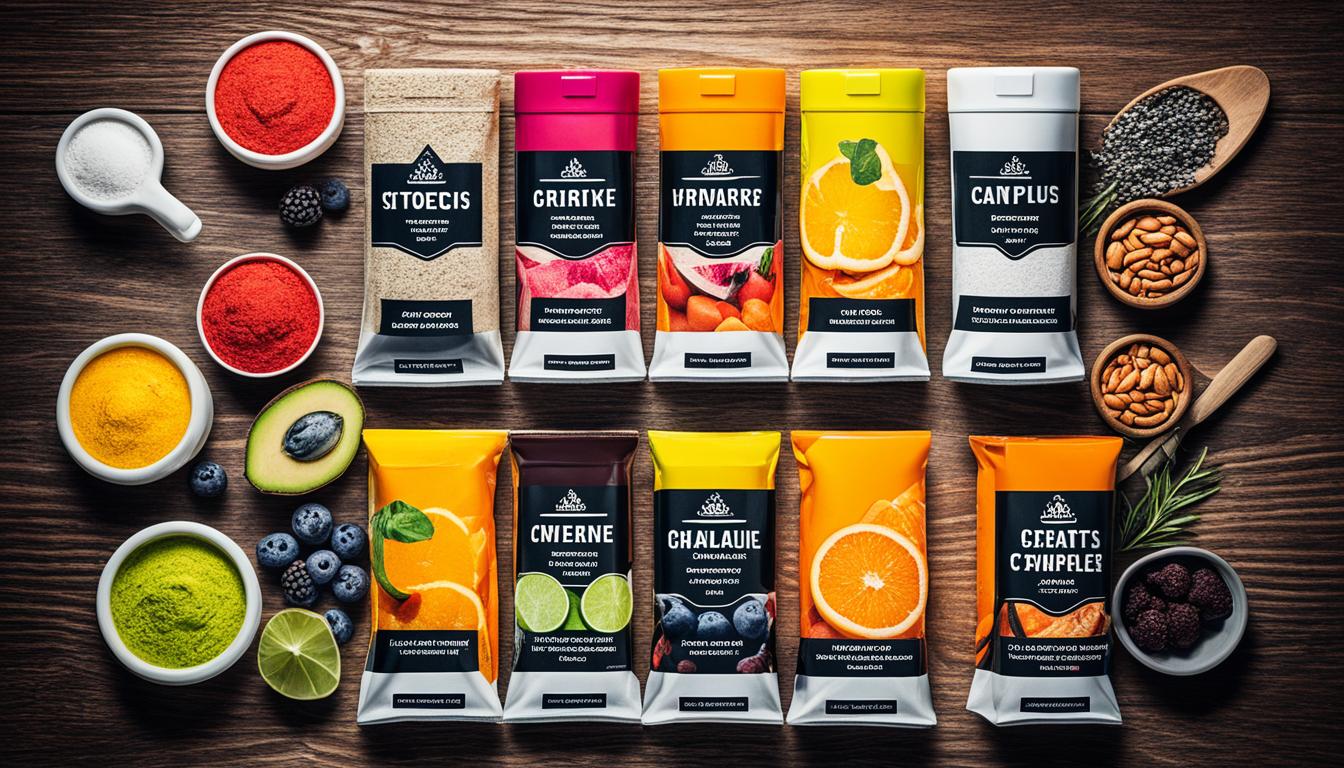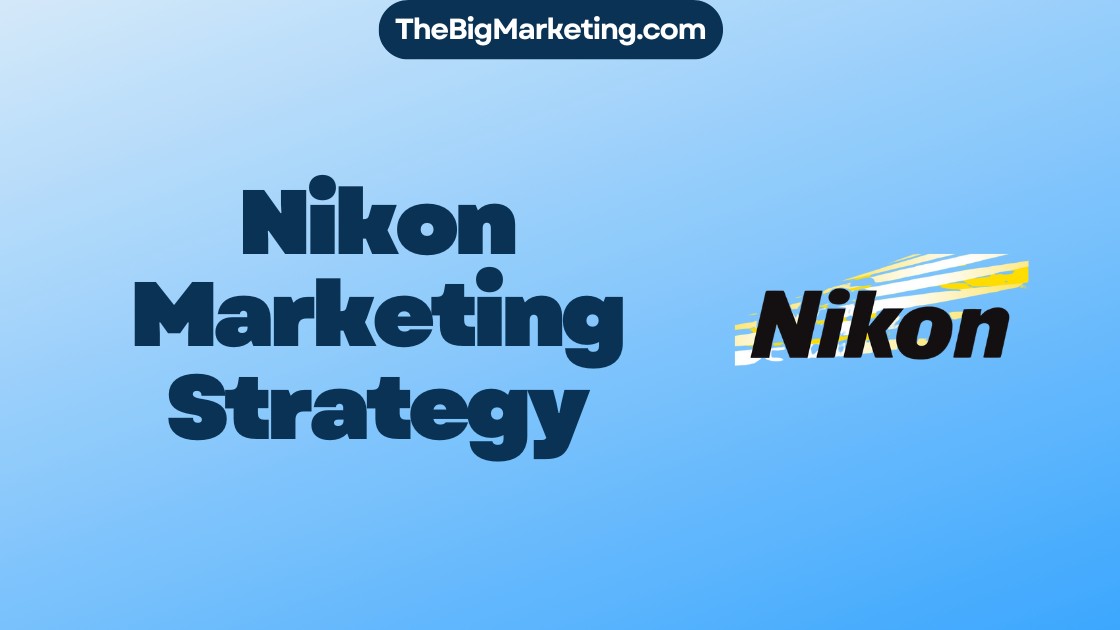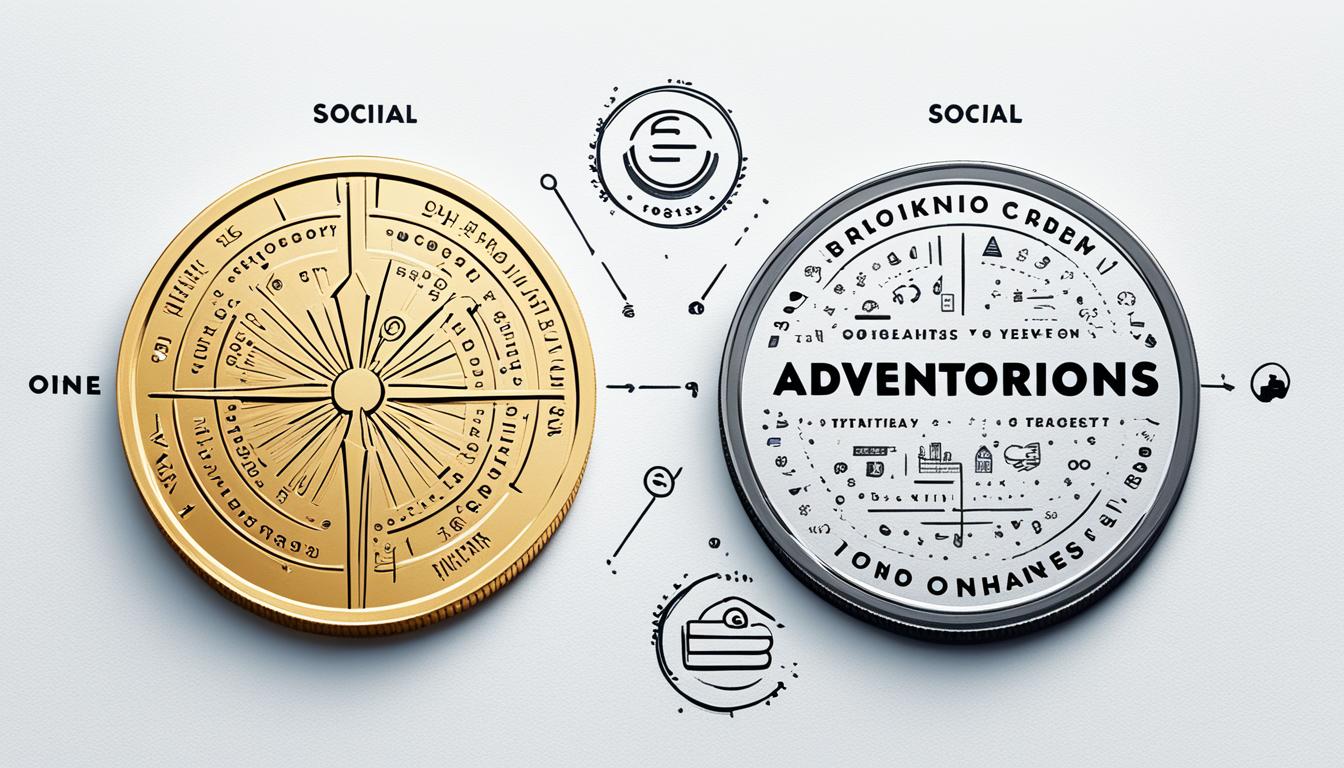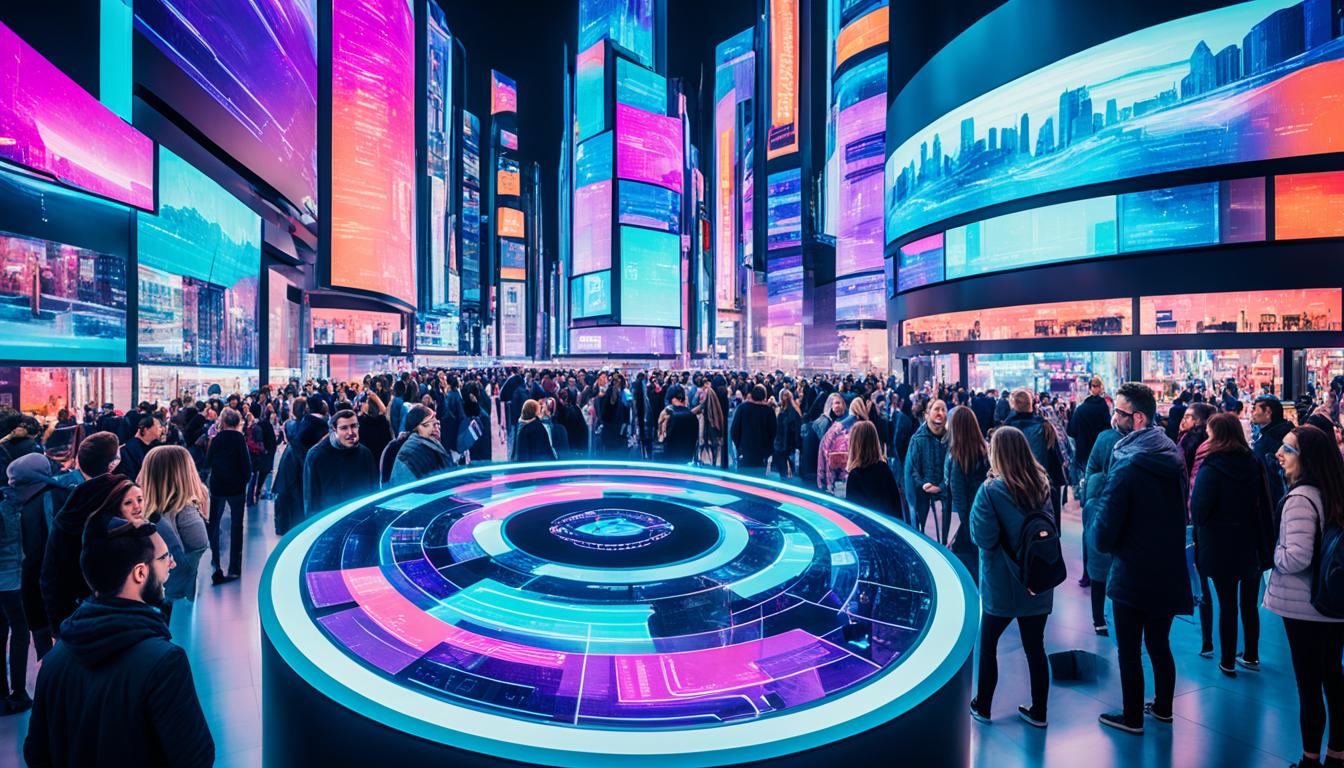The fashion industry is highly competitive and rapidly evolving, making it crucial for fashion brands to adopt effective marketing strategies to stay ahead of the game. In this complete guide to fashion brand marketing strategy in 2024, we will explore the key insights, trends, and tactics that can elevate your brand and help you achieve success in the industry. From identifying market needs to building a brand identity, creating an online store, and implementing marketing campaigns, we will cover all the essential steps to develop a comprehensive and effective fashion brand marketing strategy in 2024.
Key Takeaways:
- Fashion brands need to adopt effective marketing strategies to stay competitive in the rapidly evolving industry.
- A comprehensive fashion brand marketing strategy involves identifying market needs, building a strong brand identity, creating an online store, and implementing impactful marketing campaigns.
- Sustainability and eco-conscious practices can be a key differentiator for fashion brands in a saturated market.
- A strong brand identity, conveyed through storytelling and visual branding, is essential for connecting with the target audience.
- Creating an online store and leveraging mobile marketing opportunities are vital for reaching a wider audience and increasing sales.
Understanding the Fashion Industry Landscape
The fashion industry has witnessed significant growth over the past two decades and is projected to reach a valuation of over $2,230 billion by 2028. This growth has been driven by various factors, including evolving fashion trends, the emergence of new designers, advancements in manufacturing processes, and the rapid expansion of e-commerce. However, along with this growth comes increased competition, making it crucial for fashion brands to have a comprehensive understanding of the industry landscape and stay updated on the latest trends and consumer preferences.
One of the major contributors to the growth of the fashion industry is the ever-changing fashion trends. Consumers are always seeking the latest styles and designs, which creates a constant demand for new and innovative fashion products. Moreover, the fashion industry has become more inclusive and diverse, with the rise of new designers who bring fresh perspectives and unique designs to the market.
Advancements in manufacturing processes have also played a significant role in the growth of the industry. Technology has made it easier and more cost-effective to produce high-quality garments at scale, allowing fashion brands to meet the increasing demand and cater to a larger customer base.
The boom of e-commerce has revolutionized the way people shop for fashion. Online shopping offers convenience, a wider variety of options, and personalized shopping experiences. As a result, e-commerce has become a dominant force in the industry, with fashion brands investing heavily in their online presence and digital marketing strategies.
However, along with the growth opportunities, the fashion industry is also fiercely competitive. With numerous brands vying for consumer attention, it is crucial for fashion brands to differentiate themselves and stand out from the competition. This requires staying updated on the latest fashion trends, understanding consumer preferences, and implementing effective marketing strategies to capture and retain customers.
| Fashion Industry Growth Factors | Competition in the Fashion Industry |
|---|---|
| Evolving fashion trends | Increasing number of fashion brands |
| New designer talent | Rapidly changing consumer preferences |
| Advancements in manufacturing processes | Online and offline retail competition |
| Boom of e-commerce | Innovative marketing strategies |
The Importance of Brand Differentiation
In a highly saturated market, fashion brands must find ways to distinguish themselves from competitors. A powerful strategy for standing out is by embracing sustainability and eco-conscious practices. With approximately 42% of customers actively seeking eco-conscious fashion brands, sustainability has become a significant factor in brand differentiation. By incorporating sustainable materials, adopting eco-friendly manufacturing processes, and promoting responsible fashion consumption, brands can not only attract a more environmentally conscious audience but also build a unique brand identity.
Emphasizing sustainable fashion allows brands to align with the increasing consumer demand for eco-friendly products. This not only showcases a commitment to social and environmental responsibility but also sets fashion brands apart in the market. By integrating sustainable practices into their business models, brands can differentiate themselves from their competitors and attract a loyal customer base that values sustainability.
One way for fashion brands to demonstrate their commitment to sustainability is by using materials that have a lower environmental impact. This includes materials like organic cotton, hemp, and recycled fabrics. Incorporating these materials into clothing lines not only reduces the brand’s carbon footprint but also appeals to consumers who prioritize sustainable fashion choices.
The Rise of Eco-Conscious Fashion Brands
Eco-conscious fashion brands have gained significant traction in recent years, as consumers become more aware of the environmental impact of the fashion industry. These brands prioritize sustainable sourcing, ethical production, and transparent supply chains. Their commitment to sustainability resonates with consumers who are seeking ways to reduce their ecological footprint through their shopping choices.
Leading by example, prominent eco-conscious fashion brands such as Patagonia, Stella McCartney, and Everlane have successfully differentiated themselves in the market by integrating sustainability into their core values and brand messaging.
The Power of Responsible Fashion Consumption
Brand differentiation through sustainable fashion is not only about the materials, but also about encouraging responsible fashion consumption. Brands that promote mindful shopping, encourage a circular economy, and provide options for recycling or upcycling their products can capture the attention of environmentally conscious consumers.
By educating consumers about the environmental impact of fast fashion and offering alternatives, fashion brands can position themselves as leaders in the industry while attracting a highly engaged and loyal customer base.
| Benefits of Brand Differentiation through Sustainability: |
|---|
| 1. Unique selling proposition: Sustainable practices set a brand apart from competitors. |
| 2. Loyal customer base: Attract environmentally conscious consumers who prioritize sustainable fashion. |
| 3. Brand reputation: Enhance brand image and reputation by showcasing a commitment to sustainability. |
| 4. Market demand: Meet the growing consumer demand for eco-friendly and responsible fashion choices. |
| 5. Competitive advantage: Differentiate from traditional fashion brands and attract customers seeking sustainable options. |
By prioritizing sustainability and eco-consciousness, fashion brands have a powerful opportunity to differentiate themselves in a crowded market. Through the use of sustainable materials, responsible fashion consumption, and a clear commitment to environmental stewardship, brands can connect with an audience that values sustainability and build a unique brand identity that resonates with their values.
Building a Strong Brand Identity
A strong brand identity is vital for fashion brands to connect with their target audience and establish a loyal customer base. In a highly competitive industry, the ability to differentiate your brand and create a lasting impression is essential.
Crafting a Compelling Brand Story
Storytelling plays a crucial role in brand identity. By crafting a compelling brand story that resonates with your audience, you can create an emotional connection and build brand loyalty. Your story should reflect your brand’s values, heritage, and aspirations, allowing customers to feel a sense of attachment and belonging.
Defining Brand Values
Brand values are the guiding principles that define your brand’s actions and behavior. They reflect what your brand stands for and the impact it wants to make in the world. By defining your brand values, you can establish a strong ethical foundation that aligns with the values of your target audience.
Developing a Visual Branding Strategy
Visual branding is the visual representation of your brand’s identity. It includes elements such as logos, typography, color schemes, and imagery. Developing a visual branding strategy that aligns with your brand values and appeals to your target audience is crucial for creating a recognizable and memorable brand image.
Engaging visuals can evoke emotions, capture attention, and communicate your brand’s unique personality. Consistency across all marketing channels, including your website, social media profiles, and packaging, is key to reinforcing your brand identity and building brand recognition.
By building a strong brand identity through storytelling, defining brand values, and developing a visual branding strategy, fashion brands can connect with their audience on a deeper level, differentiate themselves from competitors, and establish a lasting presence in the industry.
Creating an Online Store
In today’s highly competitive digital landscape, having a strong online presence is essential for fashion brands looking to thrive in the e-commerce space. Creating an online store provides brands with the opportunity to reach a wider audience, increase sales, and deliver a seamless and convenient shopping experience. In this section, we will explore the key considerations for establishing an online store, from website development to mobile optimization and secure payment gateways. Let’s dive in!
The Importance of Website Development
When it comes to creating an online store, website development plays a critical role in showcasing your fashion brand and attracting potential customers. A visually appealing and user-friendly website enhances the overall shopping experience, instilling trust and confidence in visitors. To maximize the effectiveness of your online store, focus on the following aspects:
- User-Friendly Interfaces: Design a website that is easy to navigate, ensuring that users can find the products they are looking for quickly and effortlessly.
- Mobile Optimization: With the increasing number of people shopping on mobile devices, it is crucial to have a mobile-responsive website that provides optimal viewing and seamless functionality across various screen sizes.
- Secure Payment Gateways: Customers need to feel confident when making online purchases. Integrating secure payment gateways ensures the safety and protection of their personal and financial information.
Effective Customer Support and Engagement
Customer satisfaction is key to the success of any online store. Providing exceptional customer support ensures a positive shopping experience and encourages repeat purchases. Consider implementing the following strategies:
- Live Chat: Offer real-time assistance to customers with any queries they may have, creating a personalized and interactive shopping experience.
- Email Support: Respond promptly to customer inquiries via email and provide comprehensive and helpful solutions.
- Product Recommendations: Utilize algorithms to offer personalized product recommendations based on customer browsing history and preferences, enhancing engagement and increasing sales.
Creating an online store is a powerful tool for fashion brands to expand their reach and connect with a larger customer base. By focusing on website development, user-friendly interfaces, mobile optimization, secure payment gateways, and effective customer support, you can create an engaging and successful online shopping experience for your audience.
Stay tuned for the next section, where we will explore the importance of implementing effective marketing campaigns to promote your fashion brand and drive customer engagement.
Implementing Effective Marketing Campaigns
Marketing campaigns play a crucial role in promoting fashion brands and driving customer engagement. To ensure success, fashion brands must develop targeted and impactful campaigns that leverage various strategies. These strategies include:
- Social Media Marketing: Social media platforms are powerful tools for fashion brand marketing campaigns. Brands can create compelling content, engage with their target audience, and increase brand visibility. By utilizing social media platforms effectively, fashion brands can attract new customers and cultivate a loyal following.
- Influencer Marketing: Collaborating with influencers is an effective way for fashion brands to reach a wider audience and build credibility. Influencers with a strong online presence and a relevant follower base can showcase the brand’s products and connect with consumers on a personal level, increasing brand awareness and driving sales.
- Content Creation: Creating high-quality and engaging content is essential for fashion brands to capture the attention of their target audience. Content can take various forms, such as blog posts, videos, photoshoots, and interactive experiences. By consistently delivering valuable and captivating content, fashion brands can strengthen their brand image and establish themselves as industry leaders.
- Email Marketing: Email marketing is a valuable tool for nurturing customer relationships and driving repeat sales. Fashion brands can use email campaigns to share updates, exclusive offers, and personalized recommendations with their subscribers. By leveraging email marketing effectively, brands can keep their audience engaged and encourage them to make repeat purchases.
- Search Engine Optimization (SEO): Optimizing the brand’s online presence for search engines is crucial for increasing organic traffic and improving visibility. By implementing effective SEO strategies such as keyword optimization, content structuring, and link building, fashion brands can ensure that their website appears in relevant search results, attracting potential customers.
By implementing these marketing strategies, fashion brands can enhance their brand visibility, attract new customers, and cultivate a loyal following. It is important to continuously analyze and evaluate the performance of marketing campaigns to make data-driven decisions and refine strategies for even better results.
Harnessing the Power of User-Generated Content
User-generated content (UGC) has become a powerful tool for fashion brands to build brand authenticity and engage with their audience. By encouraging customers to share their experiences, reviews, and photos featuring your products, brands can create a sense of community and provide authentic social proof. UGC can be utilized on social media platforms, websites, and marketing campaigns to enhance brand credibility and foster deeper connections with customers.
One of the greatest benefits of user-generated content is its ability to showcase real customers’ experiences with your products. When customers share positive reviews or post pictures of themselves wearing your brand, it creates a sense of trust and authenticity. Potential customers are more likely to connect with and purchase from a brand that has real people vouching for its quality.
In addition to building brand authenticity, user-generated content also promotes customer engagement. When customers actively participate by sharing their content, they feel more connected to the brand and become brand advocates. This engagement cultivates a loyal community around your fashion brand, resulting in increased customer retention and word-of-mouth referrals.
To harness the power of user-generated content, fashion brands can implement various strategies. Encourage customers to share their experiences by running social media contests or featuring customer photos on your brand’s website. Implement hashtags that customers can use when posting about your products, making it easier for you to find and share their content. Additionally, consider partnering with influencers or micro-influencers who align with your brand values to generate more user-generated content.
By actively leveraging user-generated content, fashion brands can create a sense of community, establish brand authenticity, and foster deeper connections with their customers. It is an effective way to engage with your audience, build trust, and stand out in a highly competitive market.
Maximizing Mobile Marketing Opportunities
As mobile technology continues to advance, mobile marketing has become a crucial strategy in the fashion industry. With consumers increasingly relying on their smartphones for online shopping and brand interactions, fashion brands have a unique opportunity to engage with their target audience on a more personal and convenient level.
One effective way for fashion brands to maximize mobile marketing opportunities is through the development of fashion apps. These apps provide a dedicated platform for brands to connect with their customers, offering personalized shopping experiences that cater to their individual preferences and needs. By leveraging user data and advanced algorithms, fashion apps can curate product recommendations, exclusive content, and tailored promotions, enhancing the overall shopping experience for customers.
Another benefit of fashion apps is the ability to seamlessly navigate through a brand’s product catalog. With intuitive interfaces and smooth navigation features, apps allow customers to explore fashion collections effortlessly, making the shopping process more enjoyable and efficient.
Personalized Shopping Experiences
Personalization is key in today’s saturated fashion market. Fashion apps enable brands to deliver personalized shopping experiences by using customer data such as purchase history, browsing behavior, and preferences. By analyzing this data, brands can provide tailored product recommendations, promotions, and content that resonate with individual customers. This level of personalization not only enhances customer satisfaction but also increases the likelihood of conversions and repeat purchases.
Exclusive Content
Fashion apps offer an ideal platform for brands to deliver exclusive content directly to their customers. Whether it’s behind-the-scenes access to fashion shows, sneak peeks of upcoming collections, or interviews with designers, apps provide a unique and immersive experience for fashion enthusiasts. By offering exclusive content, brands can foster a sense of exclusivity and loyalty among their customers, keeping them engaged and connected to the brand.
Seamless Navigation
Mobile apps streamline the shopping process by providing a seamless navigation experience. With intuitive interfaces, categorized product catalogs, and advanced search functionalities, apps make it easy for customers to find what they’re looking for with just a few taps. This convenience not only improves customer satisfaction but also simplifies the path to purchase, ultimately driving sales for fashion brands.
In conclusion, mobile marketing offers significant opportunities for fashion brands to engage with their customers and drive sales. By leveraging fashion apps, brands can provide personalized shopping experiences, deliver exclusive content, and ensure seamless navigation. With the increasing reliance on smartphones in the fashion industry, embracing mobile marketing strategies is essential for brands to stay competitive and meet the evolving needs of their target audience.
Embracing Automation and AI in Fashion Marketing
Automation and artificial intelligence (AI) technologies have significantly transformed the fashion marketing landscape, revolutionizing the way brands connect with their target audience. By leveraging automated marketing techniques and AI-powered solutions, fashion brands can enhance their marketing strategies, deliver personalized recommendations, and gain a competitive edge in the industry.
The Power of Automated Marketing
Automated marketing enables fashion brands to streamline various marketing processes, saving time and resources while maintaining consistent customer engagement. With automated email campaigns, brands can deliver tailored messages to different segments of their audience, nurturing leads and driving conversions. Social media scheduling tools allow brands to efficiently plan and schedule posts, ensuring consistent and timely content delivery across multiple platforms. Furthermore, implementing customer journey automation can help fashion brands deliver a seamless and personalized experience throughout the entire customer lifecycle, from awareness to purchase and beyond.
Integrating AI for Personalized Recommendations
Artificial intelligence plays a pivotal role in fashion marketing by leveraging advanced algorithms to analyze vast amounts of data and gain valuable insights. AI-powered recommendation engines enable fashion brands to provide personalized product recommendations to customers based on their preferences, browsing behavior, and purchase history. By tailoring the shopping experience to individual customers, brands can enhance customer satisfaction, increase conversions, and foster loyalty.
In addition to personalized product recommendations, AI can also analyze data to predict fashion trends, allowing brands to stay ahead of the curve and offer the latest styles to their customers. By harnessing the power of AI, fashion brands can make data-driven decisions, optimize marketing efforts, and create highly targeted campaigns that resonate with their audience.
One example of AI-driven fashion marketing is the use of virtual stylists. Virtual stylists are AI-powered tools that assist customers in finding the perfect outfit or accessories based on their body shape, style preferences, and occasion. By offering personalized styling advice, fashion brands can enhance the shopping experience, increase customer satisfaction, and drive sales.
The Benefits of Embracing Automation and AI
By embracing automation and AI in fashion marketing, brands can unlock several benefits that contribute to their overall success:
- Enhanced efficiency: Automation allows brands to streamline marketing processes, optimize resource allocation, and increase overall efficiency.
- Personalized content: AI-powered solutions enable fashion brands to deliver tailored content and recommendations, fostering a deeper connection with customers.
- Improved customer experience: By leveraging automation and AI, brands can provide a seamless and personalized shopping experience that meets the individual needs of customers.
- Competitive advantage: Implementing automation and AI technologies allows fashion brands to stay ahead of competitors by delivering targeted campaigns, analyzing trends, and making data-driven decisions.
Conclusion
Developing an effective fashion brand marketing strategy in 2024 requires a comprehensive understanding of the industry landscape, differentiation from competitors, a strong brand identity, and effective utilization of online platforms and marketing campaigns. By staying updated on industry trends, fashion brands can identify new opportunities and consumer preferences, enabling them to tailor their strategies accordingly.
Differentiation from competitors is crucial to establishing a unique brand identity and attracting a loyal customer base. By incorporating sustainability and eco-conscious practices, fashion brands can tap into the growing demand for ethically produced fashion.
Engaging with customers through user-generated content builds brand authenticity and fosters a sense of community. By maximizing mobile marketing opportunities, fashion brands can provide personalized shopping experiences and convenience to their customers. Harnessing the power of automation and AI enables brands to streamline operations, deliver personalized recommendations, and capitalize on data insights.
With a comprehensive and well-executed fashion brand marketing strategy, fashion brands can position themselves for success, achieve growth, and navigate the highly competitive market landscape in 2024 and beyond.
